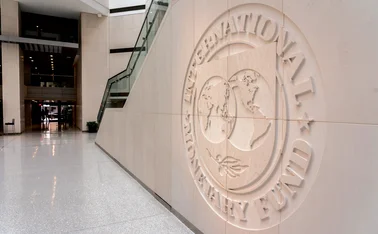
‘Stretched’ bond markets vulnerable to instability – IMF
Expectations of soft landing have compressed spreads and could lead to sudden repricing, report says

The International Monetary Fund warns optimism by investors may have left bond markets exposed to a sudden repricing if conditions change.
In its Global Financial Stability Report, published today (April 16), the fund says financial markets have “turned quite optimistic” since the October 2023 edition of the report. While that has helped mitigate the effect of central bank rate hikes on households and businesses, it has also led to “stretched” valuations in markets.
Tobias Adrian, the IMF’s
Only users who have a paid subscription or are part of a corporate subscription are able to print or copy content.
To access these options, along with all other subscription benefits, please contact info@centralbanking.com or view our subscription options here: http://subscriptions.centralbanking.com/subscribe
You are currently unable to print this content. Please contact info@centralbanking.com to find out more.
You are currently unable to copy this content. Please contact info@centralbanking.com to find out more.
Copyright Infopro Digital Limited. All rights reserved.
As outlined in our terms and conditions, https://www.infopro-digital.com/terms-and-conditions/subscriptions/ (point 2.4), printing is limited to a single copy.
If you would like to purchase additional rights please email info@centralbanking.com
Copyright Infopro Digital Limited. All rights reserved.
You may share this content using our article tools. As outlined in our terms and conditions, https://www.infopro-digital.com/terms-and-conditions/subscriptions/ (clause 2.4), an Authorised User may only make one copy of the materials for their own personal use. You must also comply with the restrictions in clause 2.5.
If you would like to purchase additional rights please email info@centralbanking.com







